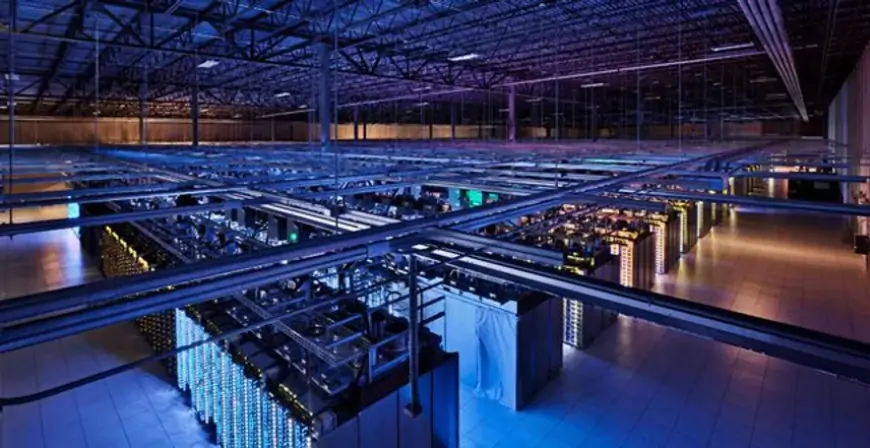What is a data center? Cloud data center explained
Ensure robust data center security with cloud-based zero trust, rigorous practices, strong data protection platforms, and trusted security vendors to reduce risks.

A data center is a physical facility housing high-performance servers, storage systems, networking gear, and other essential infrastructure. Organizations use data centers to store, manage, and distribute data, supporting large-scale applications and services such as cloud computing, colocation, and content delivery. Modern data centers leverage technologies like virtualization, automation, and artificial intelligence (AI)/machine learning (ML) to enhance availability, scalability, security, and operational efficiency.
The role of the data center
Data centers are crucial for businesses, enabling them to store, distribute, and analyze data through various hardware and software tools. Traditionally, data centers were private, on-premises facilities with conventional IT infrastructure. However, the advent of cloud technology has revolutionized their role. Now, organizations access applications, workloads, and virtualized resources hosted in third-party data centers operated by public cloud providers such as Amazon Web Services (AWS), Google Cloud, and Microsoft Azure.
This transition from on-premises data centers to cloud-based services has transformed organizational operations. Businesses can now scale their IT resources as needed, pay only for what they use, and avoid the high initial costs of building and maintaining their own data centers. Additionally, cloud providers offer robust security measures and disaster recovery solutions, ensuring continuous data safety and accessibility.
Why are data centers important?
Data centers play a critical role in storing and managing the vast amounts of data that organizations depend on for their daily operations. They provide the essential hardware needed to support IT environments, including:
- Networks
- Applications
- Security systems
- Virtual machines
Without data centers, organizations would lack the infrastructure required to house their technology and conduct business effectively.
The function of data centers has evolved with the rise of remote work and increased mobility. Traditional data centers now face challenges in keeping pace with the need for secure, reliable data access as remote and hybrid work become standard. Organizations must ensure their data centers can offer secure remote access, which demands a flexible infrastructure capable of addressing issues such as bandwidth limitations, connectivity problems, and cyber threats.
The prevalence of cyber threats has intensified the need for robust data center security. As data becomes more distributed due to remote work, the risk of exposure via the internet increases. Legacy, hardware-based security measures are no longer sufficient.
A modern, multi-layered security approach is essential to protect data centers from both internal and external threats. Many businesses are adopting a cloud-based zero trust architecture, which helps mitigate security risks, reduce downtime, and enhance overall IT operations.
How are data centers managed?
Data centers are overseen by specialized teams responsible for the operation and upkeep of the infrastructure and equipment. These teams typically include experts in various fields such as server maintenance, networking, and security.
Managing a data center involves several key tasks, including:
- Monitoring temperature and humidity levels
- Performing regular data backups
- Maintaining and updating hardware and software
- Ensuring robust security measures to protect against cyber threats
Additionally, efficient management focuses on optimizing operations to reduce energy consumption and maximize uptime. Data center managers employ advanced tools and technologies, including virtualization, automation, and machine learning (ML), to enhance resource utilization and streamline processes.
Effective data center management is essential for ensuring reliable data access, operational efficiency, and maintaining a competitive edge in today’s digital environment.
Types of data centers
Data centers come in various types, each designed to meet specific needs and goals:
- Enterprise data centers: Owned and operated by a single organization to support its internal IT requirements. The organization is responsible for managing the data center's operations.
- Colocation data centers: Offer shared computing resources and services to multiple organizations, allowing them to benefit from data center facilities without needing their own dedicated infrastructure.
- Cloud data centers: Managed by cloud service providers, these centers deliver virtualized computing resources and services over the internet.
- Modular data centers: Portable and self-contained environments that can be deployed in remote locations or areas with limited infrastructure.
- Edge data centers: Smaller facilities situated closer to end users, designed to provide faster and more efficient access to computing resources and services.
Data center security
Securing a data center involves more than just physical protection; it requires comprehensive measures to guard against cyber threats. As businesses advance their IT infrastructure, so do the tactics of threat actors. Protecting your data center has become increasingly challenging, but there are effective strategies and solutions to mitigate risks:
Adopt a cloud-based zero trust architecture: With the shift to cloud resources, transitioning to a zero trust model is crucial. Zero trust operates on the principle of least-privileged access, where no user, device, or workload is inherently trusted.
Implement rigorous security best practices: Ensure a robust security framework by promoting security awareness within your organization and enforcing stringent policies for all users. An educated workforce and well-defined security protocols are essential.
Utilize a strong data protection platform: Protect your data center’s resources with a dedicated data protection platform. While network and endpoint security are important, safeguarding your data is equally critical and should not be overlooked.
Select a trusted security vendor: When choosing a security solution, opt for vendors with a proven track record in delivering reliable cloud-native data protection within a zero trust framework. Prioritize vendors with a history of high availability and effective security solutions.












































